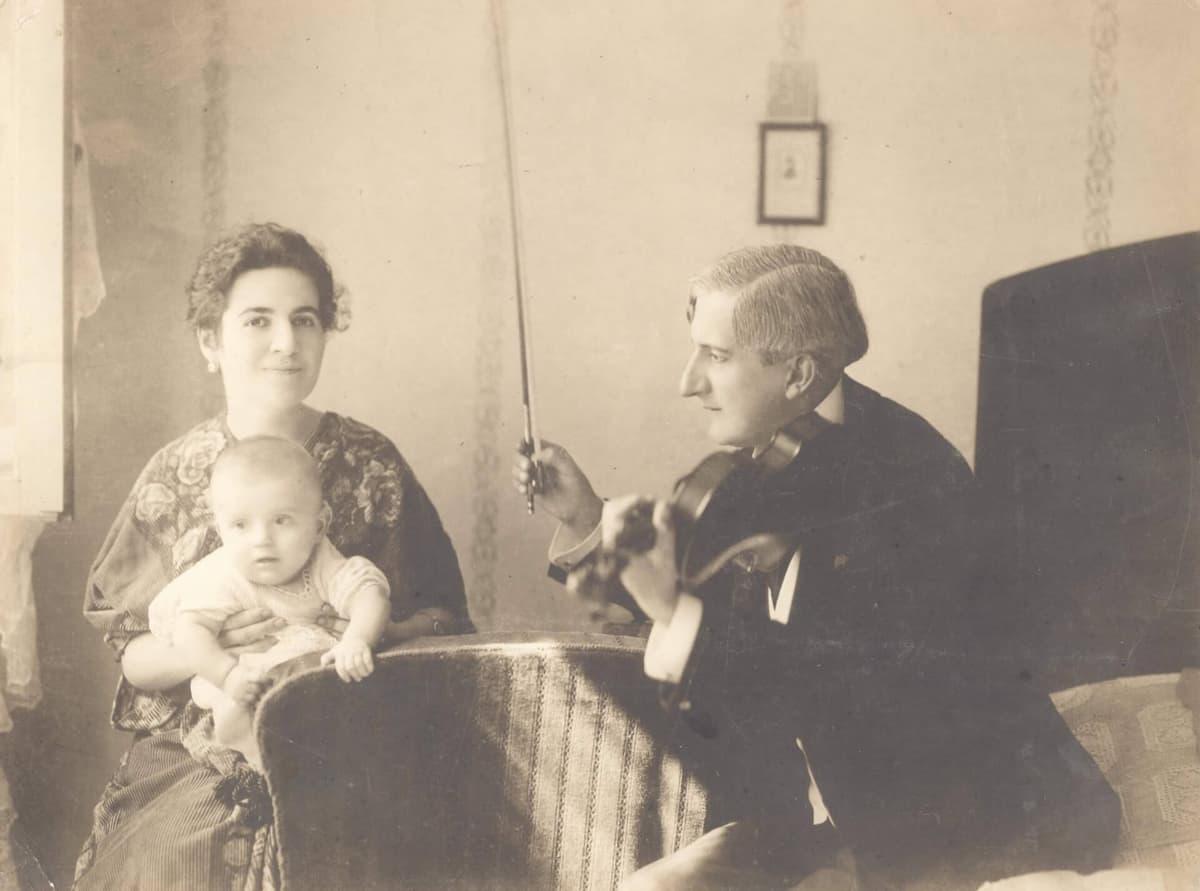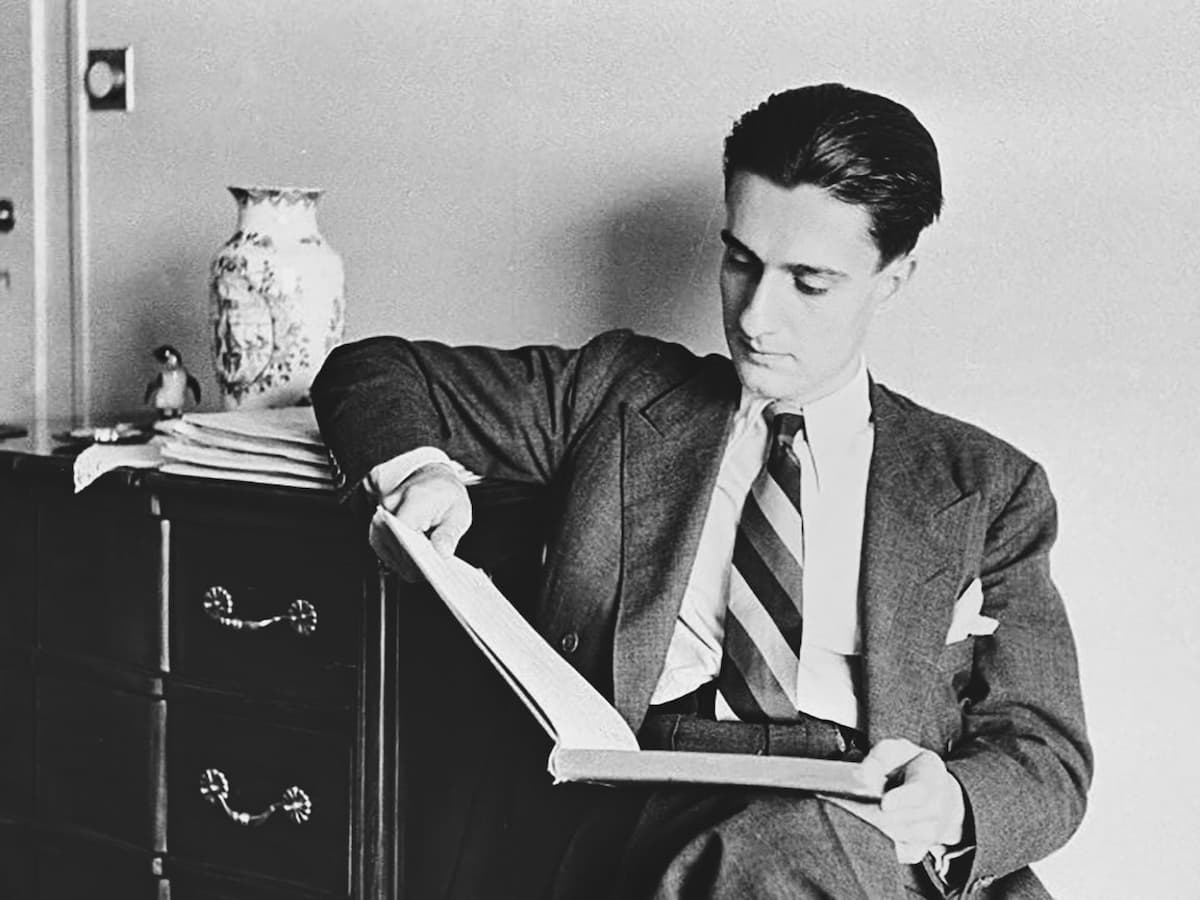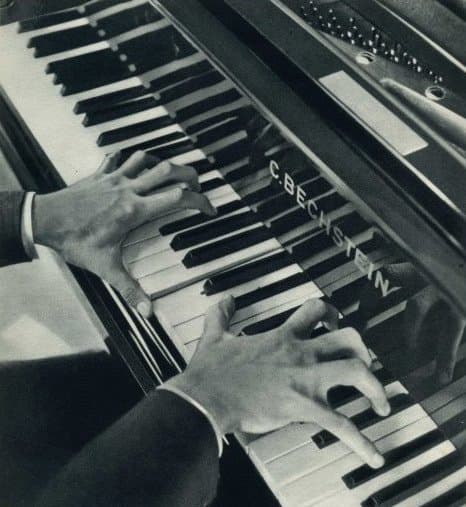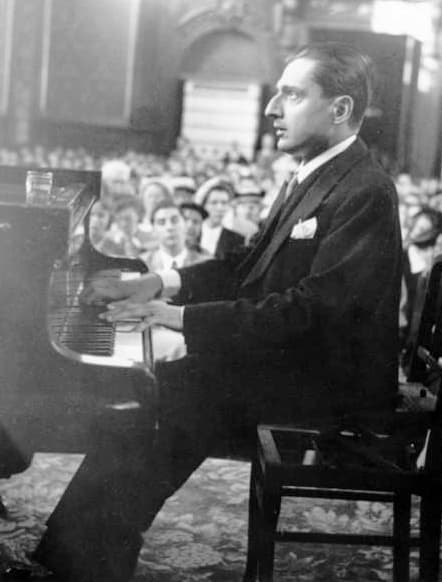Amongst 20th-century pianists, Dinu Lipatti (1917-1950) has achieved almost mythical status. Conductor Herbert von Karajan repeatedly said, “It was no longer piano playing, it was music, released from all earthly weight, music in its purest form, in a harmony that can be imparted only by one who was no longer of this world.” Karajan already alluded to the fact that Lipatti’s career was tragically cut short by the effects related to Hodgkin’s disease at the age of 33. As such, countless stories and anecdotes about the dramatic nature of his suffering at the hands of leukemia have often overshadowed his uniquely profound musicianship.

Dinu Lipatti and his parents
A scholar writes, “Lipatti was in fact a far more modern, revolutionary, and dynamic pianist than his ill health or the limited scope of his few recordings would indicate.” To be sure, the extraordinary clarity of his playing and the probing musicality of his interpretations were held in the highest esteem by the greatest pianists of his own time. But what is more, “top artists of every generation since have continued to venerate him. From Leon Fleisher, Sviatoslav Richter, and Martha Argerich to Yuja Wang and Benjamin Grosvenor, the verdict is unanimous: Lipatti was the pianistic ideal.”
Robert Schumann: Piano Concerto in A minor, Op. 54 (Dinu Lipatti, piano; Philharmonia Orchestra; Herbert von Karajan, cond.)

Dinu Lipatti
Born in the Rumanian capital Bucharest on 1 April 1917, Constantin Lipatti, or “Dinu” as he was affectionately known since childhood, came from a highly musical family. His father was a violinist who had studied with Pablo de Sarasate and Carl Flesch, his godfather was the violinist and composer George Enescu, and his mother was a pianist. She once remarked, “little Dinu could play the piano before he had learned to smile.” One anecdote even tells “that Lipatti played a minuet by Mozart at his own baptism.” Lipatti was a frail and sickly child, and his parents did not send him to school but employed a home tutor. In the event, he systematically started his piano studies with his mother at the age of four and was soon given concerts for charities that included some of his own compositions. A biographer writes, “we must be eternally grateful to his parents that they did not launch their offspring on the tempting but draining child-prodigy circuit, entrusting him at the age of eight to the local legend Mihail Jora, and when he was eleven, to the systematic teaching of Florica Musiescu at the Bucharest Academy.”
Dinu Lipatti Plays Ravel’s “Miroirs”

Dinu Lipatti’s hands
During his time at the Conservatory, Lipatti performed the Grieg Piano Concerto to great acclaim. He graduated at the age of fifteen with a performance of the Chopin Piano Concerto No. 1, and he performed the Liszt Piano Concerto No. 1 the following year. The Rumanian music scene took note and reported that Lipatti was “endowed not only with a splendid technique, but also with spiritual qualities, a fine grasp of the works performed, and a great desire to achieve the correct interpretation.” In 1933, Lipatti entered the Vienna International Music Competition, performing in front of a jury consisting of Arrau, Backhaus, Cortot, de Greef, Dohnanyi, Erdmann, Friedman, Gieseking, Hess, Landowska, Michalowski, Ney, Phillipp, Rachmaninoff, Rosenthal, and von Sauer. In the final round, it came down to a decision between Lipatti and the Polish pianist Boleslav Kon. In the end, Kon was awarded first prize, and Lipatti tied for second with the Soviet pianist Mykyscha Taras. Cortot was apparently indignant about the decision-making process and refused to sign Lipatti’s certificate.
George Enescu: Piano Sonata No. 3 in D Major, Op. 24, No. 3 (Dinu Lipatti, piano)

Dinu Lipatti’s performance in Besançon, 1950
Given the choice of attending the awards ceremony or a recital given by Cortot on that very same evening, Lipatti opted for the recital. He nevertheless reported with characteristic modesty that the first prize “went to a Pole who possessed great experience, assurance, and calm.” Apparently, Cortot did not invite Lipatti to study with him in Paris. His mother, who went with him in the autumn of 1934, had probably suggested the move to Paris in the first place. Once Lipatti had arrived, however, he was immediately recognized and invited to study with Cortot and his assistant Yvonne Lefebure, He studied composition with Paul Dukas, and conducting with Charles Munch. Lipatti subsequently studied with Nadia Boulanger, who became his spiritual mother. As he writes, “I see Nadia Boulanger two times a week at school and another two times at her home. These lessons give me so much pleasure that I don’t miss a word she says. She is, in everything, extraordinary.” Lipatti much enjoyed his time in Paris, and critics were unsure “what to praise most, his technical mastery or his profound musical understanding.” Lipatti was well aware that musical performances were changing, as he writes, “today we witness a tendency towards absolute technical perfection devoid of any sensitivity or spirit, and the influence of public opinion, which remains eternally superficial, dependent on trends made fashionable by snobbery and publicity.”
For more of the best in classical music, sign up to our E-Newsletter
Dinu Lipatti Plays Bach’s Partita No. 1, BWV 825
